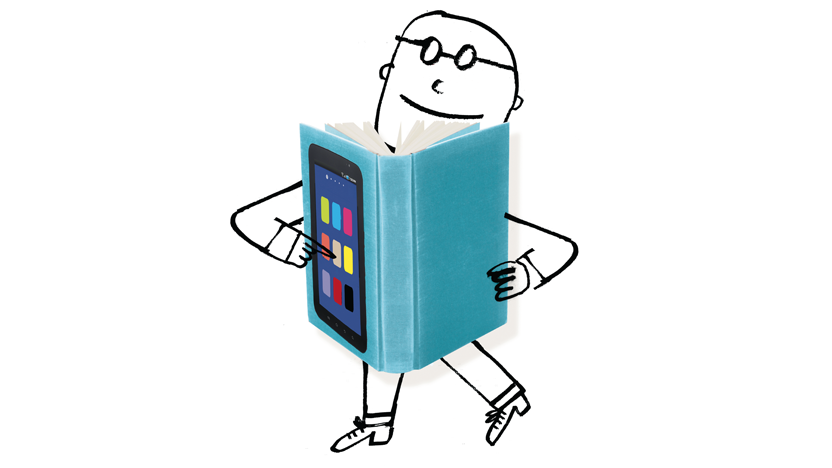2014: Transforming the Academy in the Digital Era

We are living in an era featuring massive transformations in information and communication technology that alter generations of traditional practices in a wide range of fields, careers, and elements of everyday life. Academia is no exception, as new technologies of teaching, writing, scholarly analysis, creativity, and publishing have all upended traditional modes of education, research, and knowledge generation.
We are living in an age when the world’s largest reference source, generated by a crowd of amateurs, is only a mouse click away; when we carry the processing power of a previous era’s giant supercomputers in our pockets; when we can simultaneously teach thousands of people around the globe; and when information is so widely available that the new scarcity is not knowledge, but attention.
This symposium will focus on how such technological transformations, and their corresponding cultural, political, economic, and social shifts, are changing the world of higher education and scholarly research.
2014 Clifford Symposium Event Schedule
Tara McPherson, Introduction to Scalar for Open-Source Publishing & Digital Scholarship
Professor Tara McPherson (USC) will lead an introductory workshop on Scalar, a free, open source authoring and publishing platform that’s designed to make it easy for authors to write long-form, born-digital scholarship online. Scalar enables users to assemble media from multiple sources and juxtapose them with their own writing in a variety of ways, with minimal technical expertise required.
John Palfrey, “Born Digital: Teaching and Learning in a Technological Age”
An open display of faculty and student digital work.
The End of Privacy? The Internet and Democracy’s Future
Edward Snowden’s revelations demonstrated the National Security Agency’s unprecedented surveillance capabilities in the Internet age, the ongoing collaboration between the public and private sectors that cybersecurity requires, and the ambiguity of fourth amendment protection of digital information. Facebook’s founder Mark Zuckerberg once argued that privacy is no longer a social norm.
Are sharing and openness values that should trump privacy when these values come into conflict? Is privacy still a fundamental right that democracies are bound to protect lest they cease to be democracies? Would you rather entrust the protection of your privacy to the government, to large private companies like Google, to both, or to none of the above? The panel will entertain these and related questions from a variety of disciplinary perspectives.
Panelists:
Jason Mittell (Film & Media Culture), convener
Allison Stanger (Political Science)
Tom Streeter (Sociology, University of Vermont)
Siva Vaidhyanathan (Media Studies and Law, University of Virginia)
Spatial Research and Digital Methods
This roundtable of faculty from Art History, Computer Science, and Geography will discuss how spatial questions and digital methods shape their research. A set of common questions will frame the discussion: What makes a research question spatial? What makes spatial research challenging and interesting? How do digital methods enable spatial research? What problems do they introduce?
Panelists:
Anne Knowles (Geography), convener
Carrie Anderson (Art History)
Christopher Andrews (Computer Science)
Jeff Howarth (Geography)
Tara McPherson, “Designing Digital Scholarship”
Born Digital Publishing: New technology and scholarly communication
In the same manner that going digital disrupted the music industry, and called into question the unit of publication and the methods of distribution, so too the shift to digital publishing is disrupting many of the practices and conventions surrounding academic publishing.
We’ll hear from faculty and librarians engaged in born digital publications, open access publications, publications born from the archives, new modes of peer review and alternative ways to measure impact. What do these changes mean for the system of scholarly communication? How do these changes force us to confront certain assumptions about what scholarship is and could become?
Panelists:
Mike Roy (Dean of Library), convener
Miguel Fernandez (Spanish)
Rebekah Irwin (Special Collections)
Sam Liebhaber (Arabic)
Tara McPherson (Cinema Studies, USC)
Digital Media and the Creative Arts
Although digital technology is changing all academic disciplines, its impact on the creative arts has been distinctive. This panel will gather artists and critics working in or experimenting with digital forms to explore a number of related issues, including: How has the rise of digital media impact your own artistic work and central medium? How has digital technology changed the boundaries between your work and other media and disciplines? How has digital media transformed the production, distribution, consumption, and criticism of artwork?
Panelists:
Christian Keathley (Film & Media Culture), convener
Christal Brown (Dance)
Kate Gridley (local artist)
Peter Hamlin (Music)
Paul Miller (aka DJ Spooky)
Siva Vaidhyanathan, “Technofundamentalism and the Massive Open Online Corruption of Higher Education”
Paul Miller (aka DJ Spooky, That Subliminal Kid), "Of Water and Ice"
Well known in popular culture as DJ Spooky, Miller is a groundbreaking and award-winning composer, multimedia artist, and writer, and the featured performer of the 2014 Clifford Symposium. He presents Of Water and Ice, a talk based on his critically-acclaimed graphic book The Book of Ice, and performance suite for solo violin, iPad, and video exploring the composition of ice and water, and our relationship to the vanishing environment of the arctic poles. All of the electronic sounds are generated by interpretations of either algorithms that mirror the geometry in ice crystals or the math of climate change data. Of Water and Ice and The Book of Ice are a part of Miller’s ongoing multimedia, multidisciplinary study of Antarctica.

